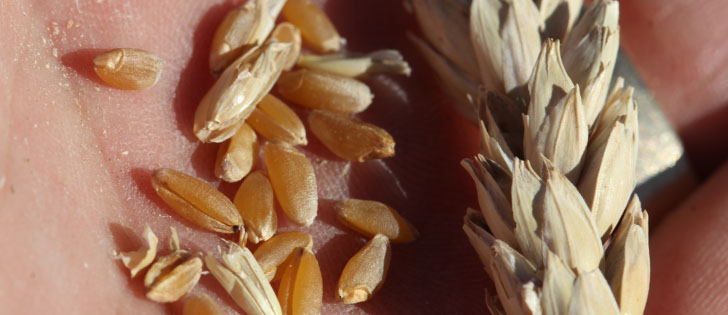KELVINGTON, Sask. – A campaign to promote locally grown organic food is being considered a success in Saskatchewan.
The Food Miles Campaign was launched in the fall of 2008 with five key objectives:
- Create an on-line database of organic producers
- Sell more local organic food to public institutions
- Develop sustainable agriculture projects at the Back to the Farm Research Foundation’s Organic Research and Demonstration farm
- Develop a media campaign to promote Saskatchewan grown organic food
- Create a curriculum in organic food and agriculture to be integrated into agriculture and consumer education courses for kindergarten to Grade 12 students
Read Also

Volatile temperatures expected for this winter
DTN is forecasting a lot of temperature variability in the Canadian Prairies this winter. Precipitation should be close to average.
Pat Godhe, a Food Miles committee member and co-owner of an organic farm near Wadena Sask., said the on-line database was the main priority of the program, which was funded by Saskatchewan Environment under the direction of the Saskatchewan Organic Directorate.
“To me, it was the basic need. Consumers were telling me they were interested in buying organic food or local food but didn’t know where to find it.”
The database, which went on-line last fall at www.saskorganic.com/foodmiles/, features short producer profiles that producers can expand and update.
A feasibility study in Saskatoon was the first step in promoting the use of locally produced organic food in public institutions.
It focused on child-care centres, post secondary institutions, the Saskatoon Health Region and public and Catholic school boards, as well as restaurants and the Child Hunger and Education Program (CHEP).
The study assessed demand for products and the ability of producers to supply that demand.
While the institutions were interested in buying local organic foods, they said challenges include prices, product availability, limited storage space and lack of a central purchasing location.
Three of the four restaurants surveyed said they buy anything from a few items to 95 percent of their ingredients from local growers. Organic certification was not as important to them as knowing the producer and building a relationship.
Ten of the 15 producers surveyed rated their interest in selling to institutions as high or very high. Challenges included finances, transportation, storage and a shortage of skilled workers.
They appeared willing to increase production if there was a “solid local demand for their products.”
The feasibility study recommended:
- Setting up a single location to buy local organic food in Saskatoon
- Hold discussions with representatives from institutions, producers and grain and meat processors
- Form a producer association and keep fees low
- Work with CHEP and the school boards to put local organic products into schools
- Work with the Saskatchewan Made Program in Saskatoon
- Develop a storage facility initiative in the city for local producers
The media campaign to promote Saskatchewan organic food has now been combined with the public institutions initiative, which may create one or two short-term jobs.
Godhe said these employees would carry out the feasibility study’s recommendations and get the campaign on the road.
“Their mandate will be to carry the message and we have some suggestions from the feasibility study about who to approach,” she said.
“One thing – go to day cares. We find that young couples who have babies are more willing to look at the nutrition in the food they’re feeding their babies and are prepared to really look at the food they’re buying when they have a child. No more fast food.”














